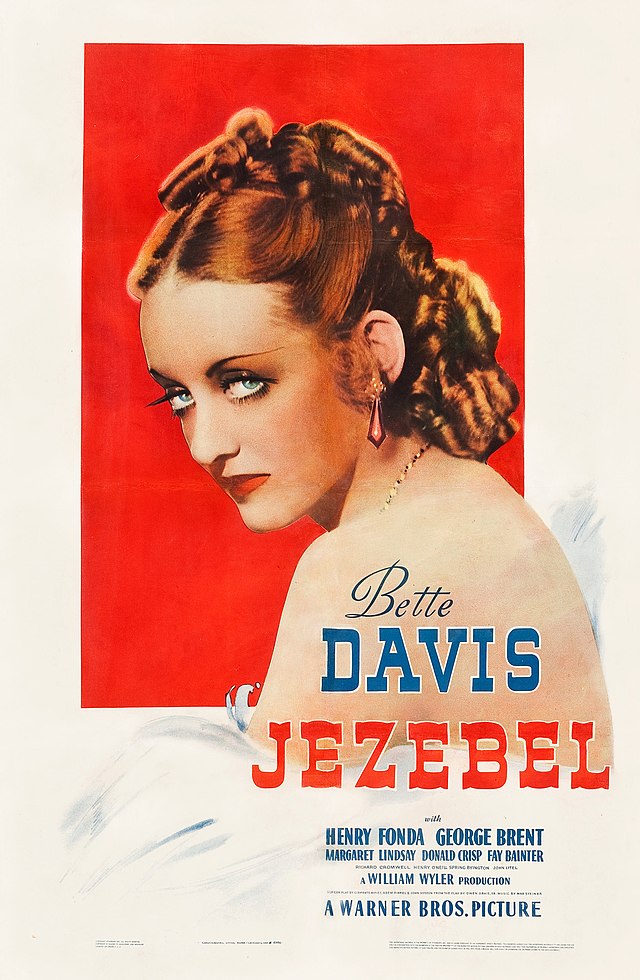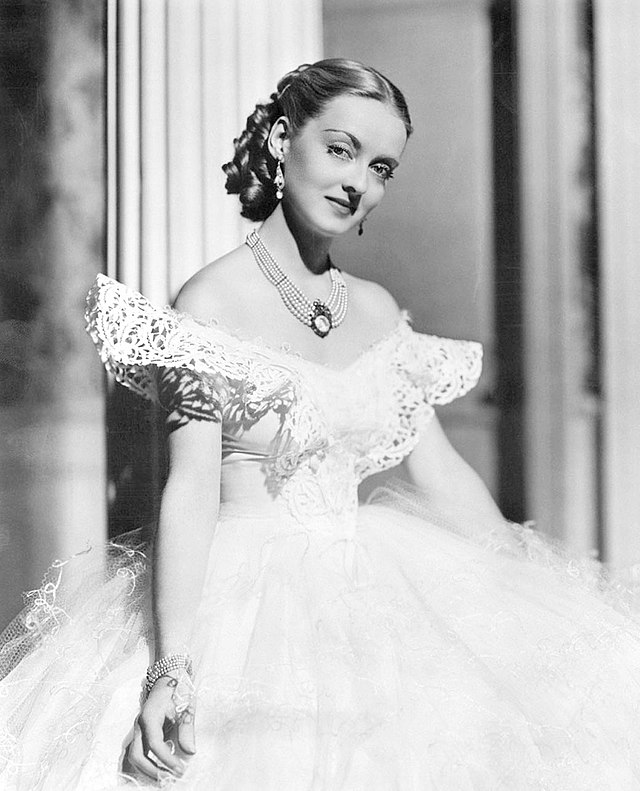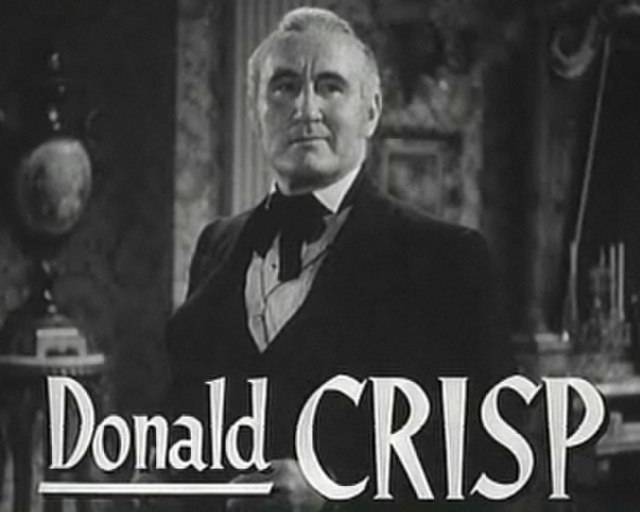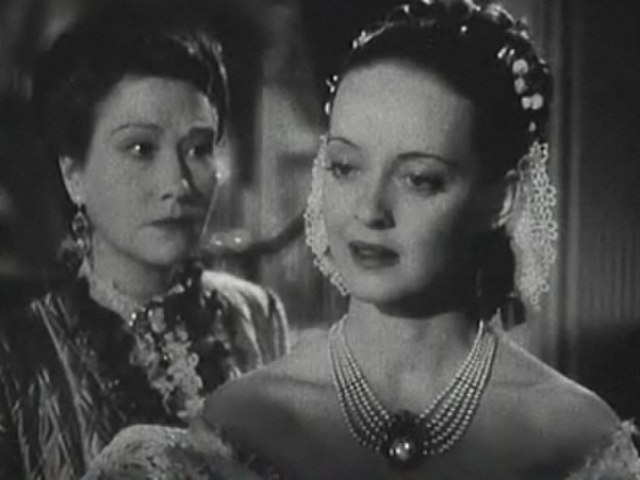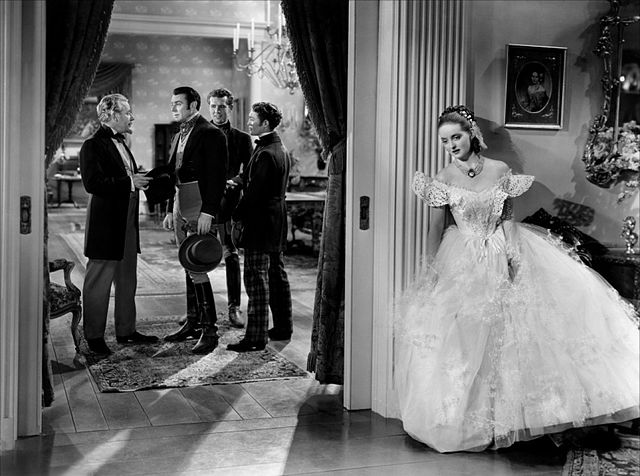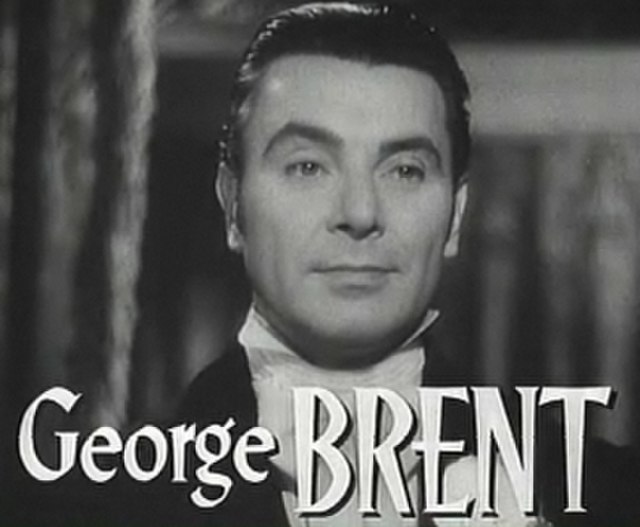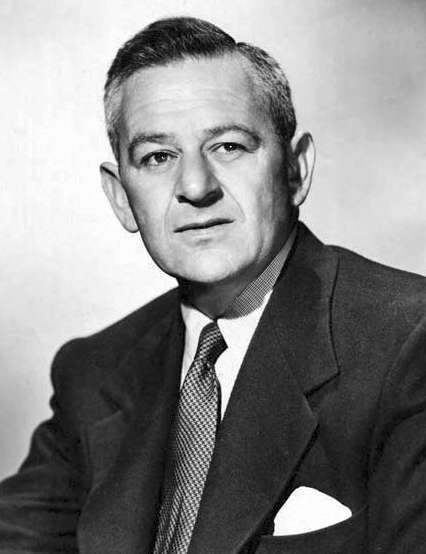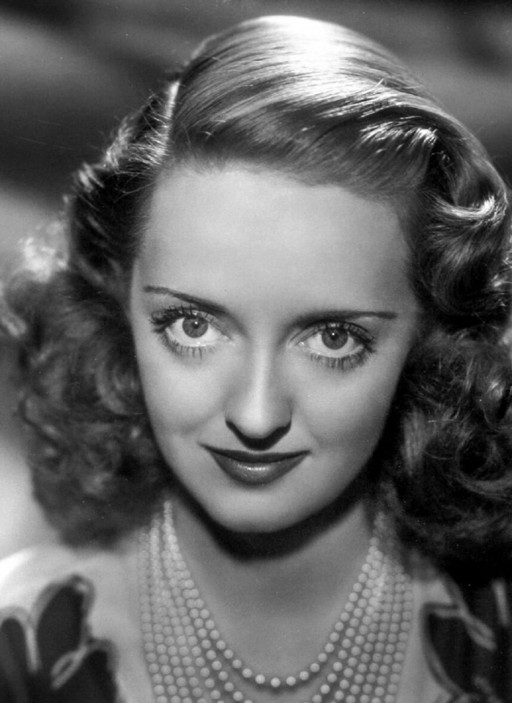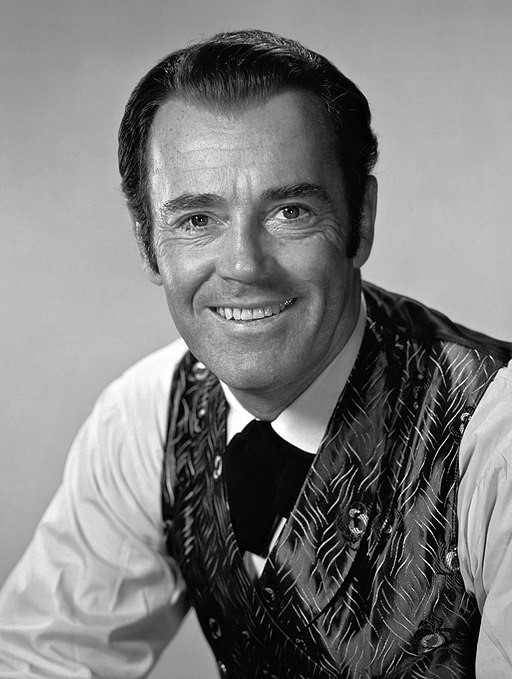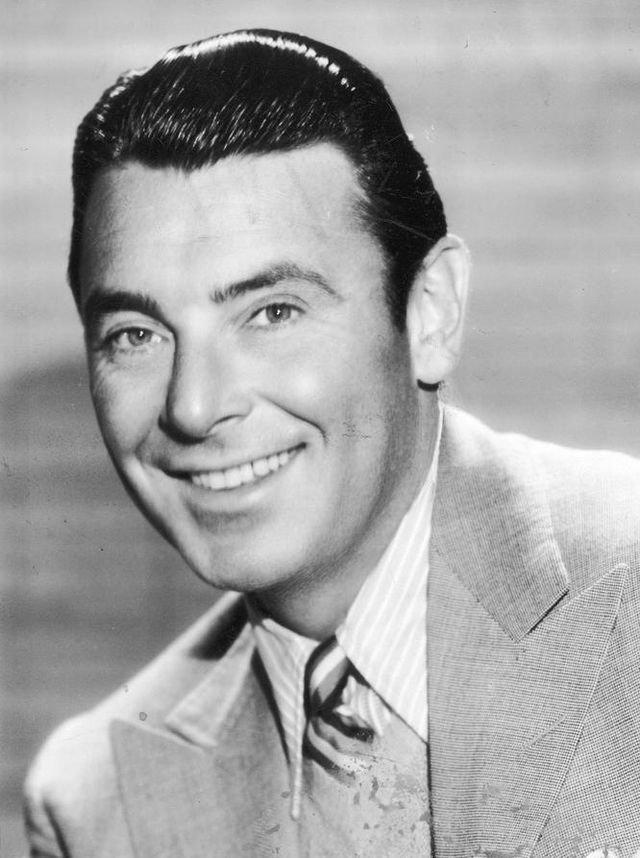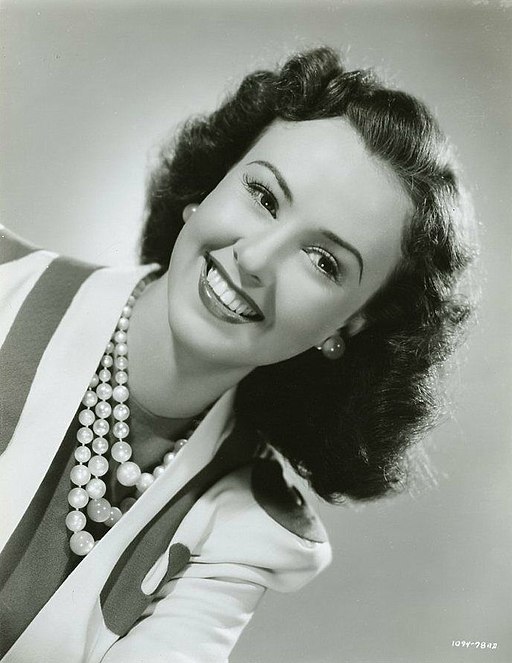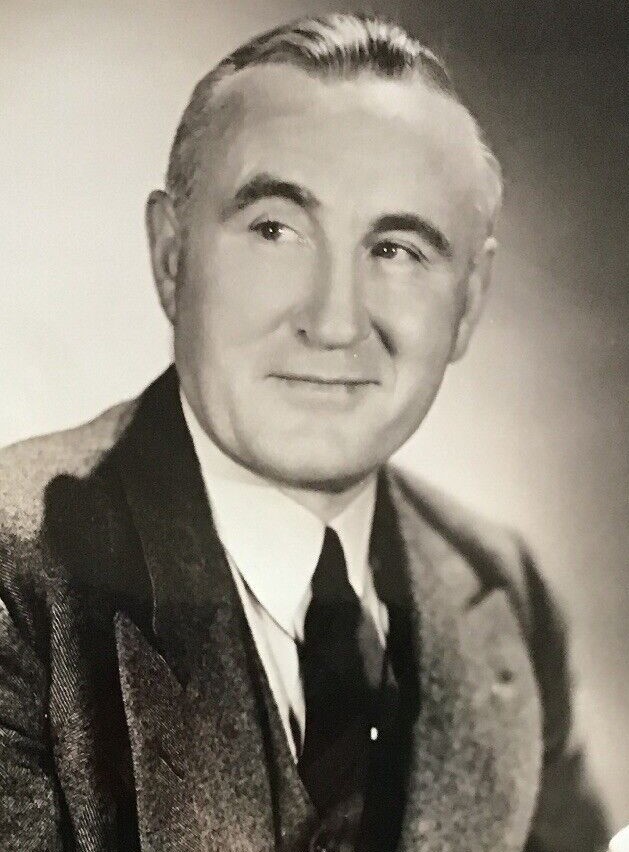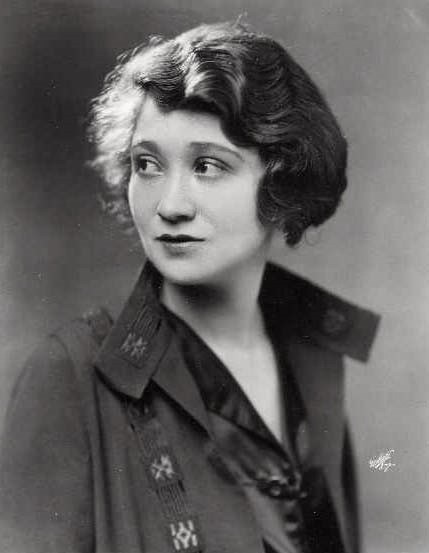Jezebel - 1938
back| Released by | Warner Bros. |
| Director | William Wyler |
| Producer | Hal B. Wallis (Executive), William Wyler (Uncredited) |
| Script | Screenplay by Clements Ripley, Abem Finkel, John Huston, based on the play by Owen Davis |
| Cinematography | Ernest Haller |
| Music by | Max Steiner |
| Running time | 104 minutes |
| Film budget | $1 million |
| Box office sales | $2.6 million |
| Main cast | Bette Davis - Henry Fonda - George Brent - Margaret Lindsay - Donald Crisp - Fay Bainter |
Jezebel
A Tale of Pride and Redemption set in the Antebellum South
Jezebel (1938), directed by William Wyler, follows the story of Julie Marsden (Bette Davis), a headstrong Southern belle whose pride and defiance lead to personal tragedy.
Set in pre-Civil War New Orleans, Julie's reckless behavior—most notably wearing a scandalous red dress to a high-society ball—alienates her fiancé, Pres Dillard (Henry Fonda). Her manipulations escalate, culminating in a fatal duel, but Julie seeks redemption by nursing Pres through a yellow fever epidemic.
Related
Jezebel – 1938
Summary of Jezebel (1938)
Set in 1850s New Orleans, Jezebel follows the tragic tale of Julie Marsden (Bette Davis), a spirited and headstrong Southern belle whose arrogance and pride lead to personal downfall. Julie is engaged to Preston "Pres" Dillard (Henry Fonda), a successful and principled banker, but she refuses to conform to societal expectations, often causing tensions between them. She relishes control over her suitors, and her behavior, while charming at first, gradually reveals her manipulative tendencies.
The film’s pivotal moment comes during a ball, where Julie, out of defiance, chooses to wear a scandalous red dress. In that time, unmarried women were expected to wear white, but Julie, wanting to shock society and assert her independence, ignores this convention. Despite Pres's objections, Julie flaunts her disregard for tradition. The reaction of the guests at the ball is one of shock and ostracism, leading to an embarrassed and humiliated Pres. This reckless act drives a wedge between them, and Pres breaks off their engagement.
After the break-up, Julie begins to realize the extent of her mistake but is too proud to apologize. Instead, she retreats into bitterness, while Pres leaves New Orleans for the North. Time passes, and Julie becomes consumed by regret and loneliness. She still harbors hope that Pres will return to her.
When Pres finally does return to New Orleans, it's not in the manner Julie had hoped. He is now married to Amy (Margaret Lindsay), a gentle and dignified Northern woman. Upon meeting them, Julie is devastated and begins to plot how she might win him back. She manipulates the men around her, including Buck Cantrell (George Brent), a brash and violent suitor, to spark jealousy and regain Pres's affection. Her manipulations eventually lead to a fatal duel between Buck and Ted Dillard (Pres’s brother), further cementing the tragic consequences of her actions.
In a final act of redemption, Julie redeems herself during the film’s climax, when a yellow fever epidemic strikes New Orleans. Pres contracts the fever, and Julie, realizing the full scope of her destructive behavior, volunteers to accompany him to an isolated leper colony, despite the great risk to her own life. She does this to nurse him back to health, hoping for redemption through sacrifice.
Analysis of Jezebel
Jezebel is often viewed as a character study of Julie Marsden, a woman whose arrogance, stubbornness, and passion bring about her downfall, making her an archetype of the Southern belle trapped by her own impulses. The film examines the intersection of pride, femininity, and societal expectations. Julie is a woman ahead of her time in many ways, refusing to conform to the rigid societal norms that restrict her, but this defiance comes at a cost. Her rebellion manifests in selfish and impulsive acts, revealing the darker side of unchecked independence.
Julie’s red dress at the ball is the film’s central symbol. It represents her refusal to submit to the expectations of femininity in the South and her rejection of the traditional role of women. The color red, bold and provocative, contrasts sharply with the innocence and purity associated with the white gowns worn by other women at the event. However, this choice backfires, and rather than empowering her, it isolates her. The dress is emblematic of Julie's larger struggle to assert her individuality in a society that does not tolerate deviation from its strict codes.
The film is also a commentary on the South's rigid class and gender structures, as well as the impending social collapse, hinted at by the looming Civil War. Julie's downfall mirrors the downfall of the antebellum South itself, with its resistance to change, its pride, and its impending destruction.
William Wyler’s direction emphasizes the film's dramatic tension, and he draws powerful performances from his cast, particularly Bette Davis. Davis's portrayal of Julie earned her the Academy Award for Best Actress, and her performance is marked by an emotional depth that brings complexity to what could have been a one-dimensional character. Julie is not simply a villain, but rather a deeply flawed woman whose tragedy lies in her inability to control her emotions and the destructive power of her pride.
Henry Fonda’s performance as Pres offers a sharp contrast to Davis. He embodies the rational, forward-thinking man who seeks progress and order, standing in opposition to Julie’s impulsive nature. His eventual marriage to Amy, a Northern woman, symbolizes the broader cultural shifts taking place in America, with the North representing progress and the South clinging to its traditions.
The film’s cinematography by Ernest Haller captures the opulence of Southern society, with its grand homes, elaborate costumes, and rigid formalities. Yet, beneath the surface beauty, there is a sense of decay, as suggested by the yellow fever epidemic that ravages the city in the film’s final act. The fever acts as a metaphor for the rotting societal structures of the Old South, which can no longer sustain themselves.
Themes
- Pride and Downfall: Julie’s story is one of pride leading to personal destruction. Her inability to admit her mistakes results in isolation and tragedy.
- Rebellion vs. Conformity: Julie's refusal to conform to societal norms speaks to the broader theme of individuality versus societal pressure. Her rebellion, while bold, ultimately leads to her undoing.
- Sacrifice and Redemption: In the end, Julie's choice to care for Pres during the yellow fever outbreak represents her attempt to redeem herself, suggesting that redemption can only come through personal sacrifice.
- The Old South in Decline: The film, set just before the Civil War, reflects the impending decline of the Old South, with its outdated traditions and rigid social structures. The yellow fever epidemic is symbolic of the larger social and cultural collapse on the horizon.
- Gender and Power: The character of Julie challenges traditional gender roles. She is headstrong, manipulative, and refuses to be submissive, making her a compelling and complex figure in a patriarchal society.
Conclusion
Jezebel is a richly layered film that explores themes of pride, social expectations, and redemption against the backdrop of the Old South. Bette Davis's unforgettable portrayal of Julie Marsden elevates the film, and her character remains one of the most memorable in classic Hollywood cinema. William Wyler’s direction, combined with a strong supporting cast and striking visual storytelling, ensures that Jezebel remains a timeless exploration of human flaws and the consequences of defiance in a rigid society.
Classic Trailer from Jezebel 1938
Full Cast
· Bette Davis as Julie Marsden
· Henry Fonda as Preston "Pres" Dillard
· George Brent as Buck Cantrell
· Margaret Lindsay as Amy Bradford Dillard
· Donald Crisp as Dr. Livingstone
· Fay Bainter as Aunt Belle Massey
· Richard Cromwell as Ted Dillard
· Henry O'Neill as General Theopholus Bogardus
· Spring Byington as Mrs. Kendrick
· John Litel as Jean La Cour
· Gordon Oliver as Dick Allen
· Janet Shaw as Molly Allen
· Theresa Harris as Zette (Julie's maid)
· Margaret Early as Stephanie Kendrick
· Irving Pichel as Huger
· Eddie Anderson as Gros Bat
· Matthew "Stymie" Beard as Ti Bat
William Wyler’s Craftsmanship
William Wyler's direction in Jezebel (1938) is a masterclass in cinematic craftsmanship, combining his meticulous attention to detail, deep understanding of character psychology, and innovative visual storytelling. Wyler was known for his ability to draw out deeply nuanced performances from his actors, and Jezebel is no exception. His directorial choices create a compelling and immersive experience, elevating the film beyond mere melodrama into a layered exploration of pride, power, and societal expectations.
Focus on Character Development
At the heart of Jezebel is the character of Julie Marsden, and Wyler’s direction ensures that every facet of her personality is fully explored. He crafts Julie not simply as a rebellious Southern belle but as a deeply flawed human being, capable of both cruelty and redemption. Wyler’s skill in working with actors is particularly evident in his collaboration with Bette Davis, who delivers one of her most celebrated performances under his guidance. Wyler, who was notorious for his multiple takes, was determined to push Davis to go beyond her natural instincts, extracting subtler layers of emotion. This approach is visible in the complexity of Julie’s portrayal—her transformation from a defiant, spoiled woman to a remorseful figure seeking redemption feels organic and gradual, a testament to Wyler’s directorial insight.
Wyler also ensures that the supporting characters, like Preston Dillard (Henry Fonda) and Buck Cantrell (George Brent), are more than just figures reacting to Julie’s drama. Each character is given space to develop, with their own motivations and emotional arcs. Wyler’s direction balances the interplay between these characters, ensuring that their relationships are multidimensional and their personal stakes are clear. This deepens the emotional impact of the story, making the tension between tradition, honor, and personal desires more palpable.
Use of Visual Symbolism
Wyler’s visual storytelling in Jezebel is a powerful tool for reinforcing the film’s themes and enhancing its atmosphere. One of the most striking examples of this is his use of the infamous red dress worn by Julie to the ball. Wyler’s framing and lighting emphasize the stark contrast between Julie’s scarlet gown and the sea of white dresses worn by the other women. Through carefully composed shots, he amplifies the shock and discomfort of the other attendees, highlighting Julie’s isolation and defiance. The scene becomes a turning point, not just in the narrative but in how the audience perceives Julie, thanks to Wyler’s keen visual storytelling.
Additionally, Wyler uses the environment to reflect the inner states of his characters. The opulent Southern mansions, the grand ballrooms, and the lush, atmospheric landscapes of New Orleans create a backdrop of both beauty and decay. The grandeur of the settings contrasts with the social and moral decay of the characters, particularly Julie, whose impulsive actions lead to the downfall of those around her. Wyler uses wide shots to capture the scale of the society in which these characters exist, yet he often shifts to tight, intimate close-ups to convey their internal struggles, creating a tension between the external beauty and the inner turmoil.
Pacing and Emotional Build-Up
Wyler's careful pacing is another hallmark of his direction in Jezebel. The film unfolds with a deliberate rhythm, allowing time for emotional build-up and narrative tension to develop. Wyler does not rush through scenes of confrontation or conflict; instead, he allows moments to simmer, making the eventual payoffs feel all the more impactful. For example, the ballroom scene, in which Julie makes her dramatic entrance in the red dress, is drawn out with a sense of slow inevitability. The tension mounts with each glance from the shocked guests and Pres’s increasing discomfort, culminating in a climax that feels both devastating and earned.
This attention to pacing is also evident in the film’s final act, as Julie moves toward redemption. Wyler slows down the action, focusing on the quiet moments of Julie’s realization and her decision to accompany Pres to the leper colony. This deliberate pacing gives weight to her transformation, making her sacrifice feel more genuine and emotionally resonant. Wyler's direction ensures that the audience feels the gravity of her choices and the consequences of her past actions.
Thematic Depth
Wyler was known for tackling films with complex themes, and Jezebel is no exception. His direction emphasizes the film’s underlying examination of pride, societal expectations, and the dynamics of power—especially in the context of gender roles. Julie’s rebellion against societal norms, her manipulation of the men around her, and her ultimate downfall reflect a larger critique of the rigid Southern social order. Wyler’s direction subtly underscores these themes without being heavy-handed. He allows the characters' actions and the unfolding events to speak for themselves, trusting the audience to pick up on the subtext.
The way Wyler juxtaposes Julie's headstrong nature with the stifling customs of her environment is particularly insightful. Julie’s pride and need for control clash with the expectations placed upon women of her time, and Wyler explores this tension with nuance. While Julie’s actions are often destructive, Wyler ensures that she is not entirely unsympathetic. He presents her as a product of a society that both idolizes and constrains women like her, allowing the audience to see the tragedy in her character’s arc.
Collaboration with Max Steiner and Ernest Haller
Wyler’s collaboration with other key figures in the film, such as composer Max Steiner and cinematographer Ernest Haller, further elevates Jezebel. Steiner’s score adds to the emotional intensity of the film, subtly underscoring the dramatic tension without overwhelming it. Wyler’s restraint in using music allows the key moments of silence or ambient sound to feel even more impactful, especially in scenes of social conflict or personal realization.
Ernest Haller’s cinematography, shaped under Wyler’s vision, enhances the film’s thematic richness. The lighting is often stark and dramatic, particularly in scenes where characters face moral or emotional dilemmas. Wyler’s use of shadows and light serves to accentuate the dualities within the characters, particularly Julie’s transition from defiance to remorse.
Conclusion
William Wyler’s direction in Jezebel showcases his ability to blend character-driven storytelling with visual and thematic depth. His nuanced approach to character development, his use of pacing and visual symbolism, and his thematic exploration of pride and societal expectations all contribute to the film’s enduring impact. Wyler’s guiding hand is felt in every frame, from the quietest moments of introspection to the grandest scenes of social drama. His direction transforms Jezebel into a timeless tragedy, one that remains a significant exploration of human frailty, social pressure, and the possibility of redemption.
Bette Davis’ Performance in Jezebel
Bette Davis’s performance in Jezebel (1938) is one of her most iconic and critically acclaimed roles, and it showcases her extraordinary ability to embody complex, flawed characters with emotional depth and intensity. Davis’s portrayal of Julie Marsden, a fiercely independent and defiant Southern belle, is marked by her meticulous control over facial expressions, body language, and vocal inflection, creating a character that feels simultaneously larger-than-life and intimately human.
Embodying Julie’s Complexity
Julie Marsden is not a straightforward character; she is deeply flawed, driven by pride, impulsiveness, and a desire for control over the men in her life. Davis captures these complexities with remarkable nuance. From the opening scenes, Davis exudes a confidence and charm that immediately commands the audience’s attention. Her portrayal of Julie is not simply that of a rebellious woman, but of someone who is keenly aware of her own power and beauty, using them to manipulate those around her. She conveys Julie’s confidence with every sharp glance, sly smile, and pointed gesture.
At the same time, Davis carefully balances Julie’s arrogance with moments of vulnerability and desperation. As the film progresses and Julie begins to realize the consequences of her actions, Davis allows cracks to show in her character’s facade. Her performance transitions from one of haughty self-assurance to a more tragic figure, as Julie’s pride turns into regret. Davis’s ability to make this transformation feel gradual and organic is one of the strengths of her performance. She never rushes Julie’s emotional journey, instead letting it unfold through subtle shifts in her demeanor and tone, keeping the audience invested in Julie’s fate.
Master of Emotional Intensity
One of Davis’s greatest strengths as an actress was her ability to convey emotional intensity without overacting, and this is particularly evident in Jezebel. In key scenes, such as the infamous ballroom sequence where Julie wears the red dress against societal expectations, Davis dominates the screen with her commanding presence. As she enters the ballroom, Davis radiates defiance, but as the other guests react with shock and condemnation, she allows Julie’s initial confidence to slowly give way to discomfort and shame. Davis’s control over her body language in this scene is extraordinary—her posture stiffens, her eyes dart nervously around the room, and her smile fades into a pained grimace, showing Julie’s realization of her mistake without a single word.
Similarly, in moments of personal conflict, such as her confrontations with Pres (Henry Fonda), Davis is able to shift between anger, sorrow, and desperation with remarkable fluidity. Her vocal delivery ranges from icy retorts to pleading outbursts, reflecting the tumultuous emotions that Julie is grappling with. Davis never portrays Julie as a one-note villain; instead, she makes her deeply human, full of contradictions and inner turmoil.
Physicality and Movement
Davis’s physicality is an essential part of her performance in Jezebel. She uses movement and posture to communicate Julie’s shifting emotional state, from her carefree struts through lavish Southern mansions to her more restrained, measured movements as the consequences of her actions begin to weigh on her. In moments of emotional turmoil, Davis becomes more physically expressive, using her body to reflect the intensity of Julie’s inner conflict.
For example, when Julie realizes that Pres has returned with his new wife, Amy (Margaret Lindsay), Davis’s body language stiffens, and her eyes narrow with a mixture of shock, jealousy, and regret. In the scene where Julie tries to manipulate Buck Cantrell (George Brent) into a duel to win back Pres, Davis’s gestures become more deliberate and calculating, showcasing Julie’s desperation to regain control. Davis understands that Julie’s emotional journey is not just something to be conveyed through dialogue but through every gesture and movement.
Facial Expressions and Eyes
One of the hallmarks of Davis’s acting is her expressive use of her eyes and facial expressions, and this is on full display in Jezebel. Davis has the ability to communicate volumes with a single glance or change in expression, and she uses this to great effect throughout the film. Whether it’s a fleeting look of hurt as Pres rejects her, a sly smile when she is plotting her next move, or the pained resignation as she volunteers to go with him to the leper colony at the film’s end, Davis’s face is a canvas of emotion.
In quieter, more introspective moments, Davis’s eyes reveal the internal struggle Julie faces. For instance, when Julie begins to comprehend the full weight of her actions after Pres marries Amy, Davis subtly shifts from anger to self-awareness, as if Julie is seeing herself for the first time. This ability to convey complex, unspoken emotions adds layers to the character and makes her eventual downfall all the more poignant.
Portraying Redemption and Sacrifice
The final act of the film is where Davis truly shines, as Julie seeks redemption through sacrifice. Davis handles this shift in Julie’s character arc with grace and subtlety. When Julie decides to accompany Pres to the quarantine camp, knowing she will likely die of yellow fever, Davis plays the scene with a quiet dignity and determination. It’s a stark contrast to the fiery, impulsive woman we see at the beginning of the film. Rather than melodrama, Davis opts for a more restrained performance, conveying Julie’s remorse and desire for redemption through small, meaningful actions—her lowered gaze, her softened voice, and her resigned yet determined expression.
The final scene, where Julie and Pres leave for the leper colony, is a testament to Davis’s ability to evoke deep emotion with minimal dialogue. She communicates the weight of Julie’s decision through her calm demeanor, as if she has finally accepted the consequences of her past actions and is at peace with her fate. It’s a powerful and emotional conclusion to the character’s journey, and Davis plays it with the perfect balance of sorrow and resolve.
Unflinching Portrayal of Flaws
What makes Bette Davis’s performance in Jezebel so remarkable is her willingness to embrace Julie’s flaws without trying to soften or romanticize them. Julie is selfish, manipulative, and prideful, yet Davis imbues her with enough humanity and vulnerability that the audience cannot help but sympathize with her, even as she makes one poor decision after another. Davis doesn’t shy away from the more unpleasant aspects of Julie’s personality, but instead leans into them, allowing the character to be as complex and messy as real people often are.
In portraying Julie’s flaws so unapologetically, Davis helps to elevate Jezebel beyond a simple melodrama. Julie is not a villain or a heroine in the traditional sense; she is a fully realized, multi-dimensional woman, driven by a mixture of passion, insecurity, and pride. Davis’s performance captures this complexity beautifully, making Julie one of the most memorable characters in classic cinema.
Bette Davis’s portrayal of Julie Marsden in Jezebel is a tour de force performance that remains one of the most compelling character studies in film history. Through her nuanced handling of Julie’s emotional arc, her masterful use of body language and facial expressions, and her fearless embrace of the character’s flaws, Davis creates a performance that is both larger-than-life and deeply human. Her ability to blend strength with vulnerability, arrogance with regret, and defiance with eventual redemption makes Julie Marsden a tragic figure whose emotional journey resonates long after the film ends. Davis’s performance in Jezebel not only earned her an Academy Award but also solidified her reputation as one of the most skilled and daring actresses of her generation.
Memorable Quotes from Jezebel
· Julie Marsden (Bette Davis):
"I’m thinkin’ of a woman called Jezebel who did evil in the sight of God."
This quote reflects Julie's awareness of her own destructive actions and foreshadows her eventual downfall.
· Julie Marsden (Bette Davis):
"This is 1852, dumplin'. 1852, not the Dark Ages. Girls don't have to simper around in white just because they're not married."
Julie says this defiantly when she decides to wear the red dress to the ball, signifying her rebellion against societal norms and foreshadowing the scandal it causes.
· Preston "Pres" Dillard (Henry Fonda):
"You should’ve been spanked long ago."
Pres says this during one of their many arguments, encapsulating his frustration with Julie’s reckless and childish behavior.
· Aunt Belle Massey (Fay Bainter):
"Child, you're out of your mind. You can't be serious."
Aunt Belle warns Julie about her decision to wear the red dress, recognizing the consequences of Julie’s defiance and how it will reflect on her in Southern society.
· Julie Marsden (Bette Davis):
"I’ll make him come back. I’ll make him come back if I have to crawl to him."
This quote shows Julie’s desperation and determination to win back Pres after realizing the gravity of her mistake. It captures her pride and manipulative nature.
· Julie Marsden (Bette Davis):
"I’d do it again. Oh, I’d do it again!"
Julie speaks this line after realizing the impact of her decisions, expressing both regret and the defiant nature that defines her character.
· Preston "Pres" Dillard (Henry Fonda):
"Don't you realize you’ve done everything in your power to make me ashamed of you?"
Pres’s words here are a turning point, as he expresses the depth of his disappointment in Julie’s behavior and their irreconcilable differences.
· Aunt Belle Massey (Fay Bainter):
"When you love a person, you love them. That’s all."
This simple but poignant quote speaks to the unconditional nature of love, reflecting Aunt Belle’s wisdom and understanding of Julie’s complex feelings for Pres.
· Julie Marsden (Bette Davis):
"I want to believe you, Pres, but I don’t. Not anymore."
Julie speaks this line during a moment of emotional vulnerability, showing the breakdown of trust between her and Pres.
· Julie Marsden (Bette Davis):
"Take me, Pres. Take me with you."
In the film's final act, Julie's plea to go with Pres to the quarantine camp signals her full transition from prideful defiance to self-sacrificial redemption.
Iconic Film Scenes
The Red Dress Ball
- Scene Overview: This is perhaps the most famous and pivotal scene in Jezebel. Julie defies societal expectations by wearing a bright red dress to a grand ball. In antebellum New Orleans, unmarried women were expected to wear virginal white, but Julie, in an act of rebellion and defiance, chooses to wear a scarlet gown to shock the attendees and humiliate her fiancé, Preston "Pres" Dillard (Henry Fonda), who had urged her to wear white.
- Why It’s Iconic: The scene is a masterclass in visual storytelling. As Julie makes her entrance, the reaction of the guests is one of astonishment and judgment. Wyler emphasizes the clash between Julie’s fiery personality and the rigid Southern social code through her vibrant red dress standing out in a sea of white gowns. Julie's smug confidence slowly fades as the reality of her social transgression sinks in, and Pres's cold anger is palpable. Bette Davis's performance is stunning as she conveys a complex mix of pride, defiance, and vulnerability. The red dress becomes a symbol of Julie’s self-destructive pride.
Pres Leaves Julie
- Scene Overview: After the disastrous ball, Pres confronts Julie about her behavior. In a heated argument, Pres ultimately decides to end their engagement. Julie, though clearly heartbroken, continues to mask her emotions with pride and defiance, unwilling to apologize for her actions or admit her mistake.
- Why It’s Iconic: This scene showcases the core of Julie’s tragic flaw—her unwillingness to back down or admit fault, even when faced with losing the man she loves. Davis’s portrayal of Julie’s internal conflict is riveting as she stubbornly holds on to her pride while Pres walks away, perhaps the only man who truly understood and loved her. The scene is a turning point for Julie and highlights the destructive nature of her character.
Julie’s Meeting with Amy
- Scene Overview: When Pres returns to New Orleans with his new wife, Amy (Margaret Lindsay), Julie confronts them in a carefully controlled display of charm and manipulation. She tries to assert her dominance over Amy by using her intimate knowledge of Pres and their shared past to unsettle the new bride.
- Why It’s Iconic: This scene is a powerful example of Bette Davis’s ability to play a layered character. On the surface, Julie is calm and collected, but there is an underlying tension and desperation in her performance. Davis uses subtle body language and veiled dialogue to show Julie’s attempts to manipulate the situation in her favor. The encounter is emotionally charged, with the tension between Julie’s lingering feelings for Pres and her jealousy toward Amy simmering just beneath the surface. It also shows Julie’s slow realization that she has lost Pres forever.
The Duel
- Scene Overview: In an attempt to win Pres back, Julie manipulates Buck Cantrell (George Brent) into challenging Ted Dillard, Pres’s brother, to a duel. The duel itself happens offscreen, but the fallout is devastating. Buck is killed, and Julie is left to face the consequences of her manipulations, which have spiraled out of control.
- Why It’s Iconic: Although the duel is not shown directly, the tension leading up to it is palpable. The scene showcases Julie’s growing desperation and the lengths she is willing to go to regain control over her life and over Pres. It also underscores the tragic consequences of her manipulations, as her actions lead to death and further alienate her from those she cares about. This is a key moment in Julie’s downward spiral, as she begins to understand the full weight of her actions.
Julie’s Redemption – The Quarantine Camp
- Scene Overview: In the film’s final act, a yellow fever epidemic sweeps through New Orleans, and Pres contracts the disease. Despite her earlier destructive behavior, Julie pleads to be allowed to care for Pres as he is taken to an isolated quarantine camp. In a final act of redemption, Julie chooses to go with him, knowing that she too could die from the fever.
- Why It’s Iconic: This scene is the culmination of Julie’s emotional arc, as she finally takes responsibility for her actions and seeks redemption through sacrifice. The self-assured, defiant woman from earlier in the film has been replaced by someone who is willing to put aside her pride and make the ultimate sacrifice for the man she loves. Bette Davis’s performance in this scene is subdued but powerful, showing Julie’s transformation from a reckless, selfish woman into one seeking redemption. Her quiet resolve as she boards the wagon to the quarantine camp is haunting and poignant.
Julie’s Apology to Aunt Belle
- Scene Overview: After Pres marries Amy, Julie has a moment of reflection and vulnerability with her Aunt Belle (Fay Bainter). She admits her mistakes and finally expresses her regret, breaking down in tears as she realizes how deeply her actions have hurt others.
- Why It’s Iconic: This scene shows Julie at her most vulnerable. After spending much of the film using her pride as a shield, she finally allows herself to express genuine remorse. Davis’s emotional breakdown is raw and moving, and Fay Bainter’s calm, compassionate presence adds emotional weight to the scene. It’s a rare moment of honesty for Julie, and it marks the beginning of her path toward redemption.
The Masked Farewell at the Quarantine Camp
- Scene Overview: In one of the film's final moments, Julie and Pres are carried off to the quarantine camp in a wagon. Pres is too ill to be fully aware of what is happening, while Julie is fully conscious of the danger and sacrifice she is about to make. They are covered by protective masks as the wagon moves off into the distance.
- Why It’s Iconic: This final visual, with Julie wearing a mask as she leaves her old life behind, serves as a powerful image of transformation and redemption. The starkness of the quarantine scene, in contrast to the lush Southern settings earlier in the film, emphasizes the gravity of her decision and the finality of her fate. It’s a haunting image that remains with the audience, marking the tragic conclusion of her journey.
Awards and Recognition
Academy Awards (Oscars) – 1939
- Wins:
Best Actress in a Leading Role: Bette Davis
Best Actress in a Supporting Role: Fay Bainter
- Nominations:
Best Picture: Warner Bros.
Best Cinematography: Ernest Haller
Best Score: Max Steiner (uncredited)
Best Art Direction: Robert M. Haas
Additional Recognition:
Though Jezebel did not win any additional major industry awards at the time beyond the Oscars, it remains an iconic film in Hollywood history, especially for Bette Davis's career. The film's legacy has been cemented as one of the great classic films from the Golden Age of Hollywood.

